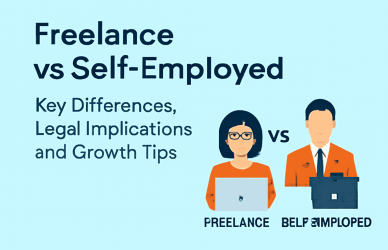Understanding “what is a corporate job” is essential for anyone exploring career paths in today’s professional landscape. Whether you’re a fresh graduate, considering a career change, or simply curious about corporate life, this guide will provide clarity on what a corporate job entails, its characteristics, and how it differs from other types of employment.
What Is a Corporate Job?
A corporate job refers to a position within a large, structured organization commonly known as a corporation. These organizations typically operate for profit and have a hierarchical structure that includes various departments such as finance, marketing, human resources, and operations. Employees in corporate jobs often work in office settings, adhering to standard business hours, and are usually salaried rather than hourly workers.
What Is Considered a Corporate Job?
When people refer to “corporate jobs,” they often mean roles that are part of a company’s formal structure. This includes positions in departments like:
- Human Resources (HR): Managing recruitment, employee relations, and organizational development.
- Finance and Accounting: Overseeing budgeting, financial reporting, and compliance.
- Marketing and Sales: Promoting products or services and driving revenue growth.
- Information Technology (IT): Managing technology infrastructure and support.
- Legal and Compliance: Ensuring adherence to laws and regulations.
While roles in retail or manufacturing settings may be part of a corporation, they are not typically considered “corporate jobs” unless they are within the company’s corporate headquarters.
Key Characteristics of Corporate Jobs
Corporate jobs are distinguished by several key features:
- Structured Environment: Clear hierarchies and defined roles within the organization.
- Standard Working Hours: Typically 9 AM to 5 PM, Monday through Friday.
- Professional Setting: Emphasis on business attire and formal communication.
- Career Advancement Opportunities: Potential for promotions and professional development.
- Comprehensive Benefits: Health insurance, retirement plans, paid time off, and other perks.
Types of Corporate Jobs
Corporate jobs encompass a wide range of roles across various departments:
- Entry-Level Positions: Roles like administrative assistants or junior analysts that provide foundational experience.
- Mid-Level Management: Positions such as department managers or project leads are responsible for overseeing teams and projects.
- Senior Executives: High-level roles, such as Chief Executive Officer (CEO), Chief Financial Officer (CFO), and Chief Operating Officer (COO), that involve strategic decision-making and leadership.
Pros and Cons of Corporate Jobs
Pros:
- Stability: Regular income and job security within established organizations.
- Professional Development: Access to training programs and mentorship opportunities.
- Networking: Interaction with professionals across various departments and industries.
- Structured Work Environment: Clear expectations and responsibilities.
Cons:
- Limited Flexibility: Adherence to set working hours and company policies.
- Bureaucracy: Potential for slow decision-making processes due to organizational layers.
- Work-Life Balance Challenges: High expectations and workload can impact personal time.
- Limited Autonomy: Decision-making may be centralized, reducing individual influence.
How to Succeed in a Corporate Job
To flourish in a corporate environment:
- Develop Soft Skills: Effective communication, teamwork, and problem-solving abilities are crucial.
- Understand Company Culture: Align with the organization’s values and work ethic.
- Seek Feedback: Regularly request performance evaluations to identify areas for improvement and growth.
- Pursue Continuous Learning: Engage in professional development opportunities to enhance skills and knowledge.
Conclusion
A corporate job offers a structured and stable career path within a large organization. Understanding the nature of these roles, their characteristics, and how they differ from other types of employment can help individuals make informed decisions about their career trajectories. Whether you’re aiming for an entry-level position or aspiring to reach executive leadership, corporate jobs provide a platform for professional growth and development.






